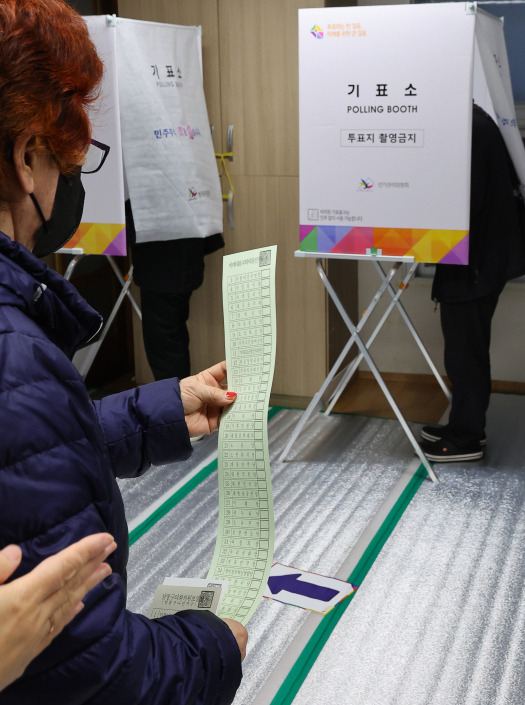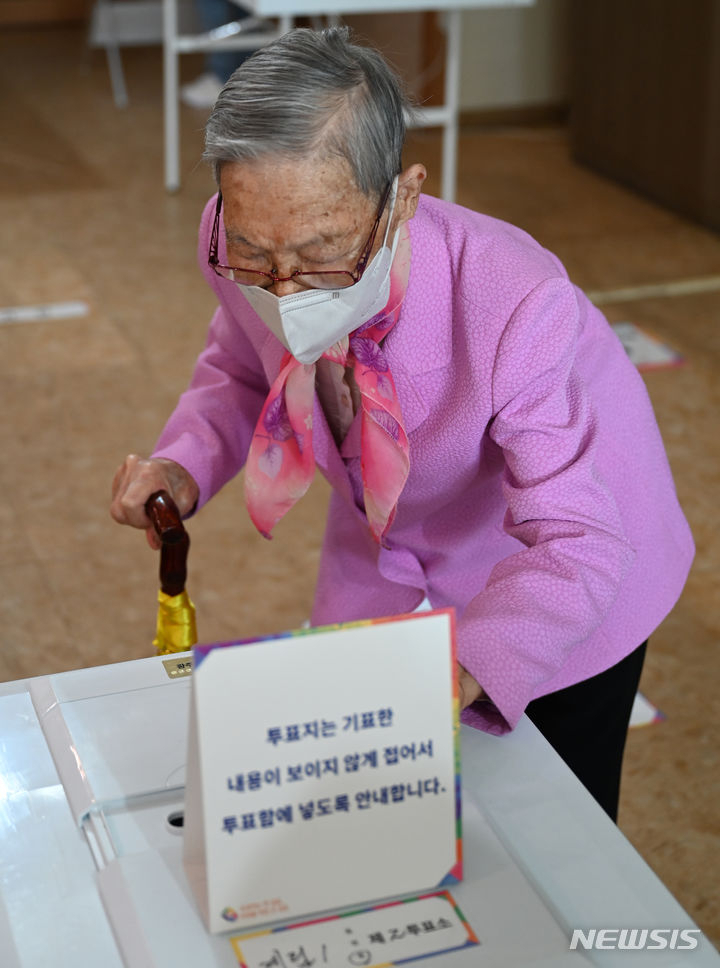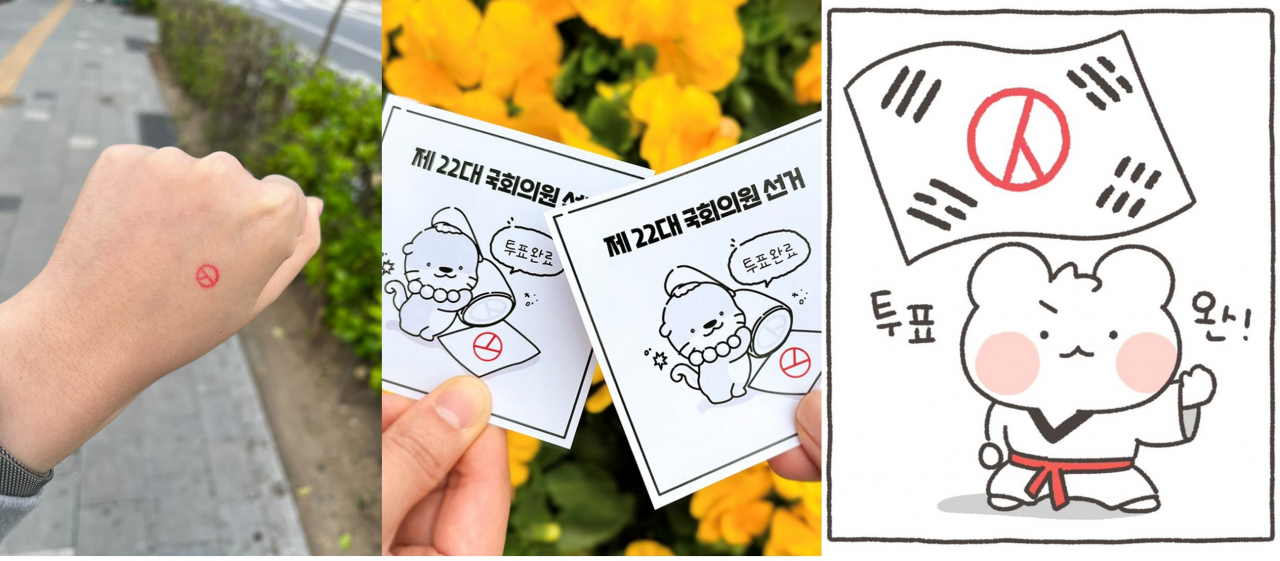From longest ballot to new voting culture, election brings new twists
By Choi Jeong-yoonPublished : April 10, 2024 - 18:10

South Korea saw the longest ballot in history in voting for the general election held across the country Wednesday, at 51.6 centimeters. The length of this year's ballot surpassed that of the previous general election in 2020, which also broke records then, at 48.1 centimeters.
The ballot's record-breaking length came after 38 parties registered to compete for the 46 proportional representation seats in the National Assembly, which will be allocated to parties based on the total number of votes each party receives.
With 38 parties vying for a share of the seats, unusual names appeared as well in a bid to get their names listed at the beginning or end of the ballot so as to stand out, as the names appear in Korean alphabetical order.
Some parties even added "ga" -- the first syllable in the standard ordering of Hangeul -- to their name, while one changed the first word of its name from "Hashtag" to "Hishtag," in order to be listed at the bottom, according to Korean alphabetical order.
The vote count is expected to take longer this year, as the length of the ballot for the 22nd election exceeded what an electronic ballot sorter can read. Officials will have to count them by hand, checking the ballots one by one and manually categorizing which party the voter voted for.

Centenarian voters
Among the 44.28 million people eligible to vote, the oldest voter was reportedly a woman who lives in Dong-gu, Busan and is 119 years old. Other regions competed on the news to introduce their elderly voters.
Kim Jung-ja was the oldest voter in Gwangju. The 108-year-old voter cast her ballot walking solo with a cane Wednesday morning. In Dangjin, South Chungcheong Province, a 111-year-old woman surnamed Lee was the oldest voter.
With an amendment to the election law passed in 2019, the youngest voter for South Korea's general election is 18 years old.
Voters over 50
Eligible voters for the general election have aged overall, with over half of the voters being older than 50 years old, reflecting how Korea's population is rapidly aging.
The group, which accounted for 33.9 percent in the 18th general election, took up 51.6 percent of the total eligible voters this time -- the first time in history that people over 50 comprised over half of the total possible voters.
Under the traditional belief that older people tend to be more conservative than younger people, the conservative ruling People Power Party held out its hope that the demographics of this year's election could deal a favorable card to their side.
However, as the so-called "86 Generation" are now aged 55-64, political watchers said it is hard to draw conclusions based on age alone. 86 Generation refers to South Koreans born in the 1960s who went to the universities in the 1980s and were very active politically and instrumental in the 1980s democracy movement, which marked the transition from military dictatorships to democracy.
Young voting culture
One thing many young Koreans did after voting was to take pictures to prove that they voted.
Usually, voters have taken selfies in front of polling stations or shots of their hands with the red election ink stamps on their hands.
On Election Day Wednesday, some young people printed out paper with cute characters on them to stamp instead. On social media, images of these papers showed popular animated characters, voters' favorite celebrities and K-pop stars.
With the baseball season having recently kicked off here, baseball fans printed out images cheering for their teams and wishing them victory.
These post-voting photos emerged as a new form of "voting proof shots" during the 21st general election in 2020, when people were prevented from getting stamped on their hands due to concerns about the spread of COVID-19.




















![[Today’s K-pop] Treasure to publish magazine for debut anniversary](http://res.heraldm.com/phpwas/restmb_idxmake.php?idx=642&simg=/content/image/2024/07/26/20240726050551_0.jpg&u=)